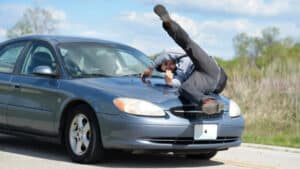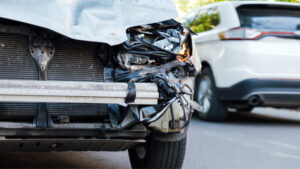Written By Chris Dolan and Jeremy Jessup
This week’s question comes from Jayson from Redwood City, CA who asks: With all the heavy rain and snow we have experienced in California, the ski resorts will be open into the summer months and potentially see a record number of attendees. Given that so many people will converge on these resorts, especially after school lets out, what duties do they have to ensure that everyone is safe from a serious ski accident?
Dear Jayson,
This is an excellent question. Ski resorts in California are a popular destination for winter sports enthusiasts. With the increasing popularity of skiing and snowboarding, the legal liabilities of ski resorts in California have become a significant concern for resort operators and visitors alike. However, there are a few ways that a ski resort can avoid liabilities in California due to skiing accidents.
Negligence
The most basic claim against ski resorts is an injury caused by their negligence. Negligence is the most common legal theory under which ski resorts may be held liable for injuries sustained by skiers. Negligence occurs when a ski resort fails to exercise reasonable care, resulting in injury or harm to a skier. In California, ski resorts owe a duty of care to skiers who use their facilities. This duty requires ski resorts to maintain their premises in a reasonably safe, inspect it for hazards, warn skiers of potential risks, and take reasonable steps to prevent accidents. If a ski resort breaches this duty of care and a skier injures themself due to their negligence, the resort may be held liable for damages.
A liability waiver is a legal document that releases the ski resort from liability for injuries sustained by skiers. However, to avoid liability under a negligence claim, most ski resorts have you waive your rights to assert a claim for their negligence. This waiver process usually occurs when you purchase your lift ticket. In California, liability waivers are generally enforceable, provided they are clear, conspicuous, and specific. Liability waivers are not absolute protections for ski resorts. If a skier injures themself due to the ski resort’s gross negligence, a liability waiver may not be enforceable, and the resort may still be held liable for damages.
Gross Negligence
Gross negligence is a legal concept that applies in California and other states to hold individuals or organizations liable for their extreme or reckless conduct that leads to harm or injury to others. Under California law, gross negligence is a higher degree of negligence than ordinary negligence, a failure to exercise reasonable care. Under California law, gross negligence is “the want of even scant care or an extreme departure from the ordinary standard of conduct.” This means that a ski resort’s conduct must be significantly more egregious than mere negligence to be considered gross negligence. A finding of gross negligence can have significant legal consequences. For example, if a ski resort is found to have acted with gross negligence in maintaining its facilities, it may be subject to the unenforceability of its liability waiver.
It is important to note that the standard for proving gross negligence is high, and not all reckless or dangerous conduct will rise to the level of gross negligence.
Assumption of the Risk
California courts have long held that skiing is an inherently dangerous activity. By purchasing a lift ticket and skiing at a resort, a rider impliedly and expressly assumes the risks of the sport. Assumption of risk is another legal theory that limits ski resort liability. In California, riders assume the inherent risks of skiing and snowboarding, such as falling, colliding with other skiers, and encountering natural hazards like rocks and trees. However, ski resorts can still be liable for all injuries sustained by skiers. If a skier is injured due to a hazard that is not inherent to the sport of skiing or due to the ski resort’s gross negligence, the resort may be held liable despite the skier’s assumption of risk.
Assumption of the risk by the skier or rider does not absolve the ski resort from liability; ski resorts may be held liable where they create or increase the risk of unsafe, atypical conditions (i.e., gross negligence). In addition, ski resorts in California must also comply with state and federal laws governing the operation of ski resorts. For example, ski resorts must maintain safe skiing conditions, post warning signs, and develop and implement safety plans. Additionally, ski resorts must comply with the Americans with Disabilities Act (ADA), which requires that ski resorts make reasonable accommodations for individuals with disabilities.
In addition to the legal liabilities discussed above, ski resorts in California may also face liability for accidents involving ski lifts and other equipment. Resorts must inspect and maintain ski lifts to ensure their safety. They may be held liable for injuries sustained by skiers due to a malfunctioning or poorly maintained ski lift. Ski resorts must also ensure that the equipment they rent, such as skis and snowboards, are safe for use by skiers.
To limit their legal liability, ski resorts in California should take steps to ensure they maintain their facilities in reasonably safe condition. They should train their employees to operate ski lifts and other equipment properly and adequately inspect and maintain them. Also, take steps such as identifying and addressing hazards, posting warning signs, and developing and implementing safety plans.










